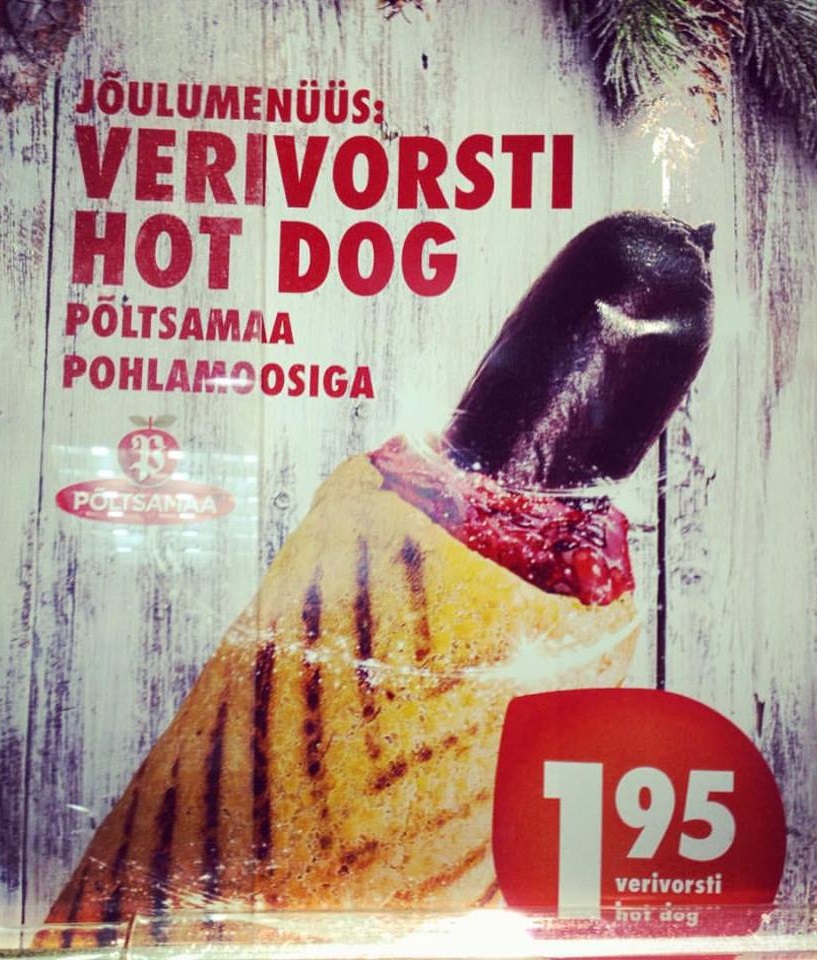Tänavalt. From the Street. Estonian jõulu street food Estonian Life
Tänavalt. From the Street.
Estonian
jõulu street food
For Estonians living in North America who love the classic Christmas food
veri/vorstid (blood sausages), being able to buy a “verivorsti hot dog”, complete with
pohla/moos (lingonberry jam) as the condiment at a kiosk on the street or convenience store is a dream come true, considering how hard it is to get them abroad, unless you make them yourself. Although
verivorstid arrive in multi-packs in grocery stores in Eesti starting in November or even earlier, selling them as hot dog street food by the Finnish chain R-Kiosk, is something new this year.
The grilled bun, as seen in the ad, is not the typical North American hot dog bun, but rather a cylindrical roll, open at only on end, into which the
vorst (sausage) is stuffed. These kinds of buns, as well as the
kabanoss type long, thin sausages were introduced to Estonia 20 years ago by Norwegian owned Statoil gas station convenience stores. Six years ago, the term
kabanoss was actually added to the
Eesti õige/keelsus/sõna/raamat, the Estonian Orthographic Dictionary. The original “kabanos” is in fact a Polish long thin dry sausage made of pork, which can be eaten hot or cold; the most popular sausage in Poland.
It’s quite interesting that we were brought up Estonian in Toronto calling hot dogs the literal translation
kuum koer and here we’re back to hot dog in the fatherland… This is somewhat reminiscent of how many classic English Christmas songs were translated into Estonian long ago by Estonians living abroad and then, when Estonia regained its independence, they were translated once again, slightly differently, by enthusiasts craving the new-found international Christmas spirit in Estonia. If the Internet has exited in the 1990s and all those great translations had been online, perhaps all of Estonia would be singing
Punanina hirvekene (Rudolf the Red-Nosed Reindeer),
On jõulude rutt (Santa Claus is Coming to Town),
Kuljused (Jingle Bells) and
Väike trummipoiss (The Little Drummer Boy) as they were translated by Heino Jõe in Toronto many moons ago, much to the enjoyment of generations of Estonian
gaidid and
skaudid in the area. And not only, since the same song sheets have now circulated to a wider circle of local Estonian organisations. RÕÕMSAID JÕULE ja JÄTKU LEIBA! May the bread last.
Riina Kindlam, Tallinn

